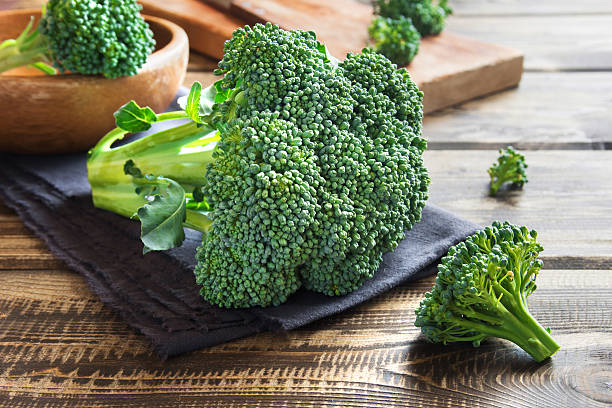
Broccoli is a nutritious vegetable that belongs to the Brassicaceae family, which also includes cabbage, cauliflower, and kale. It is known for its vibrant green color and is commonly consumed as a part of various dishes. Here’s information about broccoli, including its recipes, nutrition, benefits, and more:
- Broccoli Recipes:
- Roasted Broccoli: Toss broccoli florets in olive oil, salt, and pepper, then roast in the oven until tender.
- Broccoli Stir-Fry: Sauté broccoli with other vegetables, such as bell peppers and carrots, in a stir-fry sauce.
- Broccoli Soup: Blend steamed broccoli with vegetable broth, garlic, and spices to make a delicious soup.
- Broccoli Casserole: Combine broccoli with cheese, breadcrumbs, and other ingredients to create a tasty casserole dish.
- Broccoli Salad: Mix raw broccoli florets with a tangy dressing, along with ingredients like bacon, cranberries, and almonds.
- Broccoli Sprouts: Broccoli sprouts are young broccoli plants that are harvested within a few days of germination. They are rich in nutrients, particularly a compound called sulforaphane, which has been associated with various health benefits.
- Broccoli Salad: Broccoli salad typically includes raw or blanched broccoli florets mixed with other ingredients like bacon, onions, cheese, and a creamy dressing. It is a popular dish that can be served as a side or a main course.
- Broccoli Sprouts Benefits: Broccoli sprouts are packed with nutrients and are considered a superfood. They are rich in vitamins C, K, and A, as well as minerals like potassium and iron. Additionally, they contain a high concentration of sulforaphane, which has antioxidant and anti-inflammatory properties and is associated with potential cancer-fighting benefits.
- Broccoli Nutrition: Broccoli is a low-calorie vegetable that is high in fiber, vitamins, and minerals. It is an excellent source of vitamin C, vitamin K, folate, and vitamin A. It also contains smaller amounts of calcium, iron, potassium, and other essential nutrients.
- Broccoli Seeds: Broccoli seeds are the tiny, oval-shaped seeds that are used for growing broccoli plants. They are available for purchase and are used for sprouting or planting in gardens.
- Broccoli Calories: One cup of raw broccoli contains approximately 31 calories. Cooking methods and added ingredients can alter the overall calorie content of a dish.
- Broccoli Protein: One cup of raw broccoli contains about 2.6 grams of protein. While broccoli is not a significant source of protein compared to animal-based foods, it does contribute to overall protein intake when consumed as part of a balanced diet.
- Broccoli Meaning in Urdu: Broccoli is known as “Hari Phool Gobhi” in Urdu.
- Broccoli Benefits for Males: Broccoli contains nutrients like vitamin C, folate, and antioxidants, which can support overall health. Some studies suggest that the compounds found in broccoli, such as sulforaphane, may have a protective effect against certain types of cancers, including prostate cancer, which can benefit males.
- Broccoli Benefits for Females: Similarly to males, females can benefit from the nutrients and antioxidants present in broccoli. Additionally, the folate content in broccoli is important for women of childbearing age as it plays a crucial role in fetal development and can help prevent neural tube defects during pregnancy.
- Broccoli Origin: Broccoli is believed to have originated in the Mediterranean region, specifically Italy. It was later cultivated and spread to other parts of Europe and eventually to the Americas.

